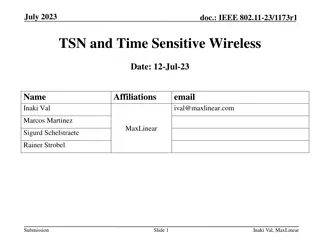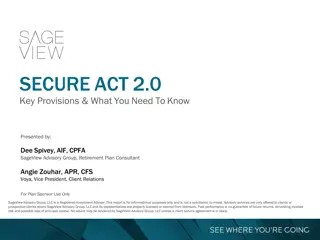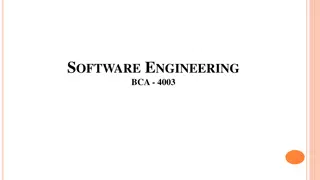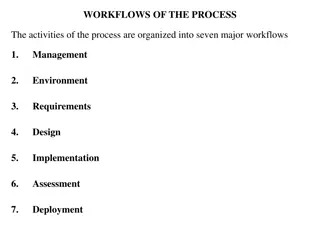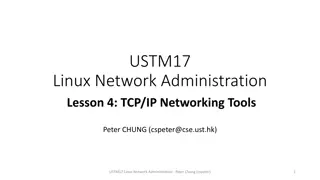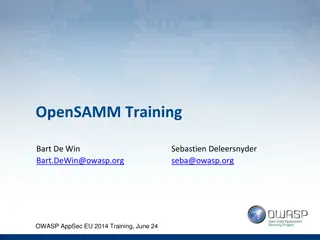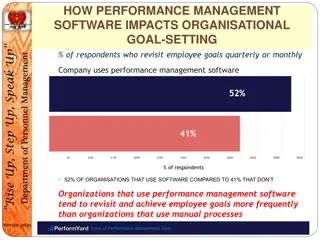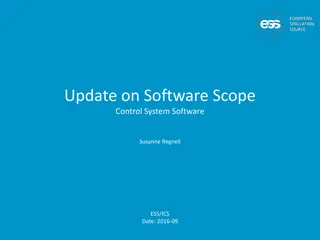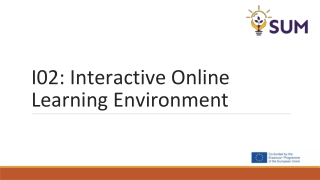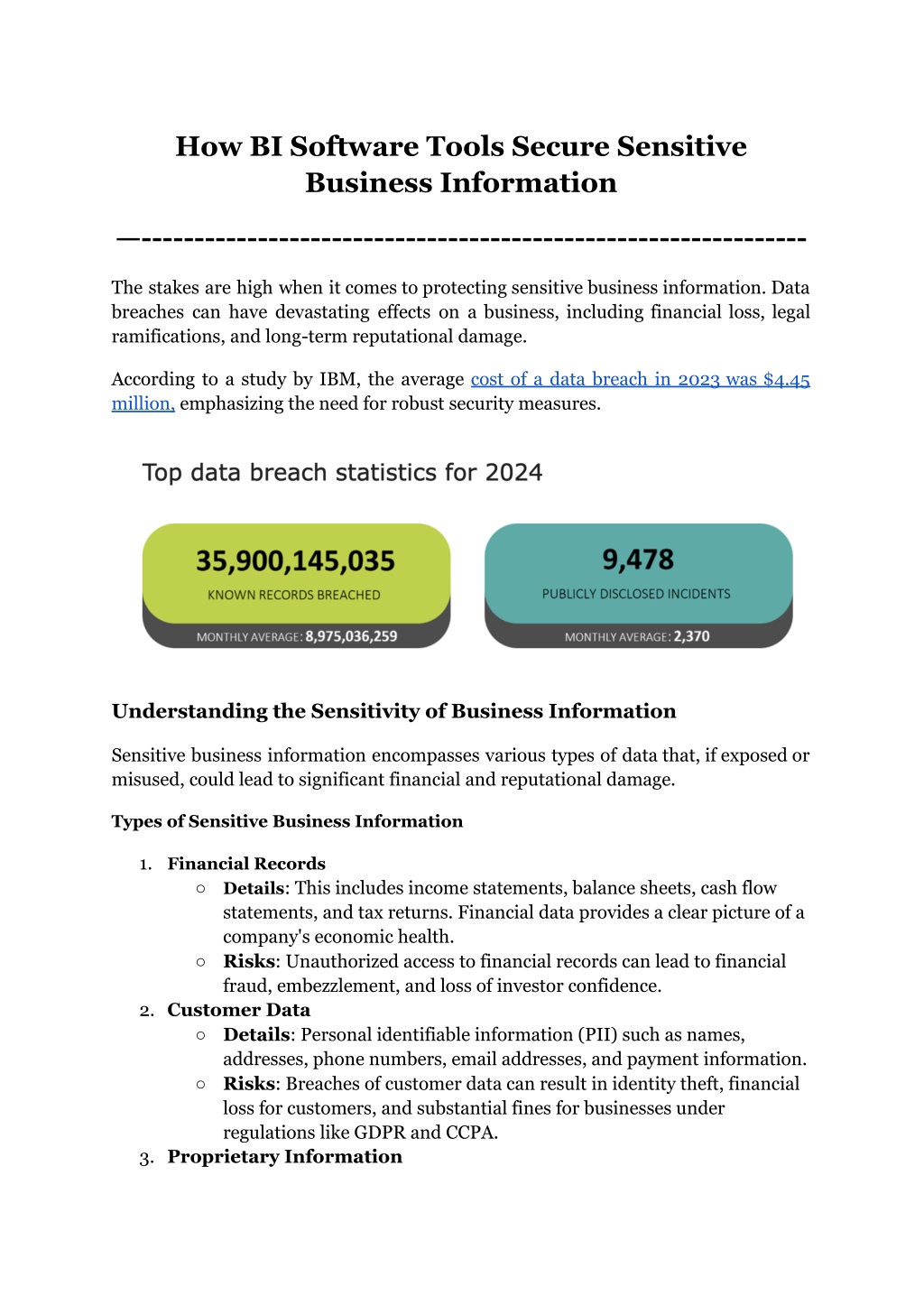
How BI Software Tools Secure Sensitive Business Information
Protecting sensitive business information is more important than ever. BI software tools play a crucial role in securing data through advanced security features such as data encryption, user access controls, real-time monitoring, audit trails, and data anonymization. These tools not only safeguard financial records, customer data, and proprietary information but also ensure compliance with regulatory requirements.
Download Presentation
Please find below an Image/Link to download the presentation.
The content on the website is provided AS IS for your information and personal use only. It may not be sold, licensed, or shared on other websites without obtaining consent from the author. Download presentation by click this link. If you encounter any issues during the download, it is possible that the publisher has removed the file from their server.
Presentation Transcript
How BI Software Tools Secure Sensitive Business Information --------------------------------------------------------------- The stakes are high when it comes to protecting sensitive business information. Data breaches can have devastating effects on a business, including financial loss, legal ramifications, and long-term reputational damage. According to a study by IBM, the average cost of a data breach in 2023 was $4.45 million, emphasizing the need for robust security measures. Understanding the Sensitivity of Business Information Sensitive business information encompasses various types of data that, if exposed or misused, could lead to significant financial and reputational damage. Types of Sensitive Business Information 1. Financial Records Details: This includes income statements, balance sheets, cash flow statements, and tax returns. Financial data provides a clear picture of a company's economic health. Risks: Unauthorized access to financial records can lead to financial fraud, embezzlement, and loss of investor confidence. 2. Customer Data Details: Personal identifiable information (PII) such as names, addresses, phone numbers, email addresses, and payment information. Risks: Breaches of customer data can result in identity theft, financial loss for customers, and substantial fines for businesses under regulations like GDPR and CCPA. 3. Proprietary Information
Details: Intellectual property such as patents, trade secrets, product designs, and proprietary algorithms. Risks: Exposure of proprietary information can lead to loss of competitive advantage, patent disputes, and revenue loss. 4. Employee Information Details: Personal and professional details of employees, including social security numbers, health records, and performance evaluations. Risks: Compromising employee information can lead to identity theft, decreased morale, and potential lawsuits. 5. Strategic Plans Details: Business strategies, marketing plans, and upcoming product launches. Risks: Leakage of strategic plans can benefit competitors, disrupt market strategy, and result in lost business opportunities. How Business Intelligence Tools Affect Data Safety In an era where data breaches and cyber threats are becoming increasingly sophisticated, the role of BI software tools in data security has never been more critical. Integrated Security Features One of the key strengths of BI software tools is their integrated security features designed to protect data at every stage. These tools come equipped with robust encryption mechanisms that secure data both at rest and in transit. By encrypting data, BI tools ensure that even if the data is intercepted during transmission, it remains unreadable to unauthorized parties. Businesses must use this level of encryption for all sensitive information, including financial records, customer data, and proprietary information. BI software tools also offer granular user access controls. These controls allow administrators to define who can access specific data sets and Business Intelligence dashboard tools, significantly reducing the risk of internal data leaks. For instance, the Grow BI tool provides detailed permission settings, enabling businesses to restrict access to sensitive information based on user roles and responsibilities. This ensures that only authorized personnel can view or interact with critical data, enhancing overall data security. Real-time Monitoring and Alerts Another vital aspect of BI software tools in data security is real-time monitoring and alerts. Modern BI tools continuously monitor data access and usage patterns, identifying any unusual activity that could indicate a security threat. When 2
suspicious behavior is detected, the system generates immediate alerts, allowing businesses to respond swiftly and mitigate potential risks. This proactive approach to security is essential in preventing data breaches before they can cause significant damage. For example, if an unauthorized user attempts to access a sensitive Business Intelligence dashboard tool, the system will alert the security team, who can then take appropriate action to prevent a breach. The Grow BI tool excels in this area by providing comprehensive monitoring capabilities that keep businesses informed about the security status of their data in real time. Data Anonymization Techniques BI software tools also employ data anonymization techniques to protect sensitive information during analysis and reporting. Data anonymization involves modifying personal data in a way that prevents the identification of individuals. This is particularly important for businesses that handle large volumes of personal and sensitive information, as it ensures compliance with data protection regulations such as GDPR and CCPA. By using anonymized data in their analyses, businesses can gain valuable insights without compromising the privacy of their customers or employees. The Grow BI tool, for example, allows businesses to anonymize data fields within their dashboards, ensuring that sensitive information remains protected even when shared with stakeholders. Audit Trails for Accountability Maintaining accountability is a critical component of data security, and BI software tools provide comprehensive audit trails that track all data access and modifications. These audit trails offer a transparent record of who accessed what data and when, making it easier to identify the source of any security issues. In the event of a data breach, audit trails facilitate forensic analysis, helping businesses understand how the breach occurred and what steps can be taken to prevent future incidents. The Grow BI tool, with its detailed logging and audit capabilities, enables businesses to maintain a clear and accountable record of data interactions. This not only enhances security but also ensures compliance with regulatory requirements that mandate thorough record-keeping of data access and usage. Regular Security Updates Lastly, BI software tools are regularly updated to address emerging security vulnerabilities and enhance existing protections. These updates are crucial for staying ahead of cyber threats and ensuring that the security measures within the BI tools remain effective. Businesses using Business Intelligence dashboard tools 3
benefit from these updates, which often include patches for known vulnerabilities, improvements in encryption algorithms, and enhancements to user access controls. The Grow BI tool exemplifies this commitment to security by providing frequent updates that bolster its security features, ensuring that businesses can trust their data is well-protected against the latest threats. Key Security Features of Leading BI Tools Data Encryption One of the basic security features of BI software tools is data encryption. Encryption ensures that data remains unreadable to unauthorized users both at rest and in transit. Leading BI tools use strong encryption algorithms to protect sensitive business information, ensuring that even if data is intercepted during transmission, it cannot be deciphered without the appropriate decryption key. This is particularly crucial for safeguarding financial records, customer data, and proprietary information. For example, the Grow BI tool employs robust encryption techniques to secure data at all stages. Whether the data is stored in the cloud or being transmitted between servers, it remains protected against unauthorized access, providing peace of mind to businesses that their critical information is safe. User Access Controls Granular user access controls are another vital security feature of leading BI tools. These controls allow administrators to define detailed permissions for each user, ensuring that only authorized personnel can access specific data sets and BI dashboards. This minimizes the risk of internal data leaks and ensures that sensitive information is only accessible to those who need it for their roles. With the Grow BI tool, businesses can set up customized permission levels for different users, restricting access to sensitive data based on job functions and responsibilities. In addition to improving security, this degree of control aids in staying in compliance with data protection rules. Real-time Monitoring and Alerts Real-time monitoring and alerts are essential for detecting and responding to potential security threats promptly. Leading BI software tools continuously monitor data access and usage patterns, identifying any unusual activity that could indicate a security breach. When suspicious behavior is detected, the system generates immediate alerts, enabling businesses to take swift action to mitigate the risk. The Grow BI dashboard tool excels in this aspect by providing comprehensive real-time monitoring capabilities. By keeping a constant watch over data access, 4
businesses can quickly identify and address potential security issues before they escalate, ensuring the ongoing protection of their sensitive information. Audit Trails Audit trails are a critical component of data security, providing a transparent record of all data access and modifications. Leading BI tools maintain detailed logs that track who accessed what data and when, making it easier to identify the source of any security issues. These logs are invaluable for forensic analysis in the event of a data breach, helping businesses understand how the breach occurred and what steps can be taken to prevent future incidents. With the Grow BI tool, businesses can leverage detailed audit trails to maintain accountability and transparency. These logs not only enhance security but also ensure compliance with regulatory requirements record-keeping of data access and usage. that mandate thorough Regular Security Updates Regular security updates are crucial for maintaining the integrity of BI software tools. As cyber threats evolve, it is essential for BI tools to receive frequent updates that address new vulnerabilities and enhance existing security features. These updates often include patches for known issues, improvements in encryption algorithms, and enhancements to user access controls. The Grow BI tool is committed to providing regular security updates, ensuring that its users benefit from the latest protections against emerging threats. Staying up-to-date with these updates, businesses can trust that their BI tools are equipped to handle the ever-changing landscape of cyber security. Data Anonymization Techniques Data anonymization is another key security feature of leading BI tools. This process involves modifying personal data in a way that prevents the identification of individuals, ensuring that sensitive information remains protected during analysis and reporting. Data anonymization is particularly important for businesses that handle large volumes of personal and sensitive information, as it helps maintain compliance with data protection regulations such as GDPR and CCPA. The Grow BI dashboard tool allows businesses to anonymize data fields within their dashboards, ensuring that sensitive information is protected even when shared with stakeholders. This feature enables businesses to gain valuable insights from their data without compromising privacy. Conclusion 5
Securing sensitive business information is a critical concern in the increasingly data-centric world. BI software tools play an indispensable role in this effort by integrating advanced security features such as data encryption, user access controls, real-time monitoring, audit trails, and data anonymization techniques. These features not only protect data but also ensure compliance with regulatory requirements, thereby safeguarding a business s reputation and operational integrity. The Grow BI tool exemplifies these security capabilities, offering robust solutions that help businesses protect their sensitive information. With customizable permissions, comprehensive monitoring, and regular security updates, Grow ensures that your data remains secure at all times. Ready to see how Grow can enhance your data security? Try Grow today with a 14-day free trial and experience the peace of mind that comes with robust data protection. Don't just take our word for it check out Grow reviews from verified users on Capterra and discover how other businesses are benefiting from this powerful BI tool. Start your free trial now and secure your business s sensitive information with Grow. 6


